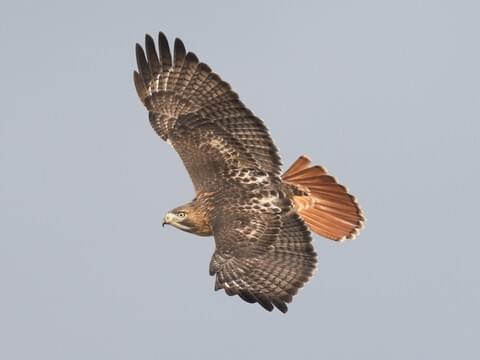What are three examples of birds of prey?
Eagles, Hawks, Falcons, Owls, Vultures, Kestrels, Kites, and Osprey
True or false: Planting flowers near your crops can help attract pollinators.
True!
What place on the farm experiences the most weathering, erosion, and deposition?
A) the forest
B) the creek
C) the Kearny Barn
B) the creek
What is a baby deer called?
A fawn
True or false: An example of a pioneer species (the first organisms to live in an environment) are mosses and lichens.
True!
These are both simple organisms that can grow and survive in harsh conditions. They can break down rocks and help begin the process of soil creation.
What characteristics does a bird need in order to be considered a bird of prey?
A rounded and sharp beak, sharp talons, and to hunt their prey.
Compost can be made up of what three things?
Food scraps, egg shells, animal manure, wood ash, bone meal, grass clippings, cardboard, dry leaves, shredded paper.
Define weathering, erosion and deposition.
Weathering: the breaking down of rock by rain, freezing, wind, etc.
Erosion: when the broken pieces are moved to a new place by wind, water, ice, or gravity.
Deposition: the dropping of sediment in a new place.
Are deer most active during...
A) the day
B) nighttime
C) dawn and dusk (around sunrise and sunset)
C) Dawn and Dusk
Leaves change color due to less...
A) Sunlight
B) Hot weather
C) Chlorophyll
D) All the above
D) All the above
Shorter days, cooler temperatures, and less chlorophyll in the leaves all lead to the vibrant colors we see in the trees!
 Identify this bird of prey:
Identify this bird of prey:
Red-tailed Hawk
What three nutrients are most important to plants?
A) Iron, Chlorine, and Aluminum
B) Nitrogen, Phosphorus, and Potassium
C) Water, sun, and air
B) Nitrogen, Phosphorus, and Potassium!
What is an example of an erosion control method?
True or False: A deer's nose is about 5 times more sensitive than a humans.
False, it is 100 times more sensitive!
Forest succession is...
A) The types of animals and plants that live in an area
B) How successful an animal can live in an environment
C) The process of change and growth in an environment, or how forests are formed.
C) The process of change and growth in an environment, or how forests are formed.